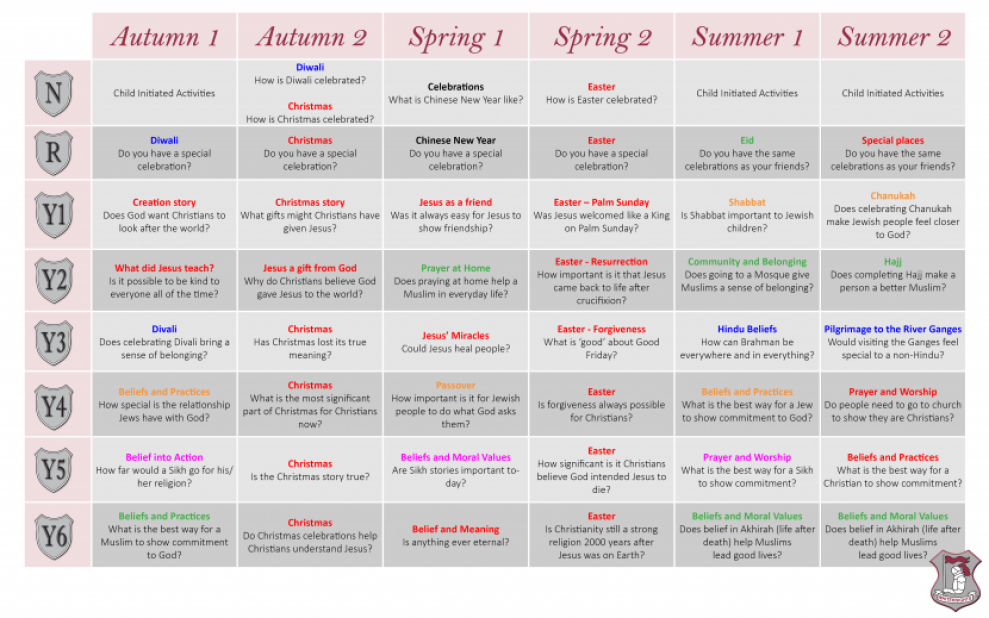Religious Education
At Whiteknights, the RE curriculum helps pupils explore world religions and moral values with confidence and sensitivity. Through reading, discussion, practical activities, and enrichment opportunities, pupils develop knowledge, cultural awareness, and communication skills. They learn to reflect on their own beliefs, respect others, and understand the impact of religion and faith in society.
Please note: Parents and carers have the right to withdraw their child from all or part of Religious Education (RE). However, we encourage families to discuss this with the headteacher before making a decision. As part of our commitment to teaching British Values, our RE curriculum weaves in respect and tolerance of all faiths and worldviews. Because we offer a balanced and broad approach, we find that withdrawals are very rare. Further information can be found in our RE Policy.

RE Whole School Overview
Intent
-
All pupils will make strong progress in RE and read quality texts confidently to develop their knowledge of world religions and collective worship.
-
Learning is sequenced so pupils build on prior knowledge and demonstrate understanding in line with age-related expectations.
-
The RE curriculum is designed to be inclusive, tilting learning to support disadvantaged pupils and filling any gaps in knowledge.
-
Pupils will enjoy learning and develop confidence, communication skills, and a wide vocabulary to discuss religious topics sensitively and appropriately.
-
Pupils will explore the impact of significant people, events, and ideas in religion, gaining cultural capital for life.
-
Enrichment opportunities such as trips, visitors, outdoor learning, and practical activities deepen pupils’ understanding of RE topics.
Implementation
-
Lessons follow clear objectives with modelling, structured questioning, and inclusive participation strategies.
-
Pupils’ subject-specific vocabulary (e.g., faith, belief, sacred, tradition) is developed and reinforced across lessons.
-
Feedback, questioning, and formative assessment inform teaching and ensure pupils know more and remember more.
-
Key concepts are revisited to embed knowledge in long-term memory, and home learning consolidates learning.
-
Teachers ensure pupils understand the relevance of RE within the broader curriculum and society.
-
Enrichment includes local and wider trips, guest speakers, outdoor learning, and cross-curricular links.
Impact
-
Pupils confidently discuss RE topics and articulate what they have learned, showing progress in books and discussions.
-
Lessons ensure mastery of the curriculum, with positive progress visible across all pupil groups.
-
Pupils develop a love of RE and gain knowledge of world religions, moral values, and collective worship.
-
Engagement in enrichment and visits deepens understanding and cultural awareness.
-
Pupils are confident communicators, able to discuss beliefs and practices with sensitivity and respect.
-
Quality first teaching and assessment ensure pupils know more and remember more about RE.
-
RE promotes collaborative skills, cultural understanding, and respect for diversity and different faiths.
